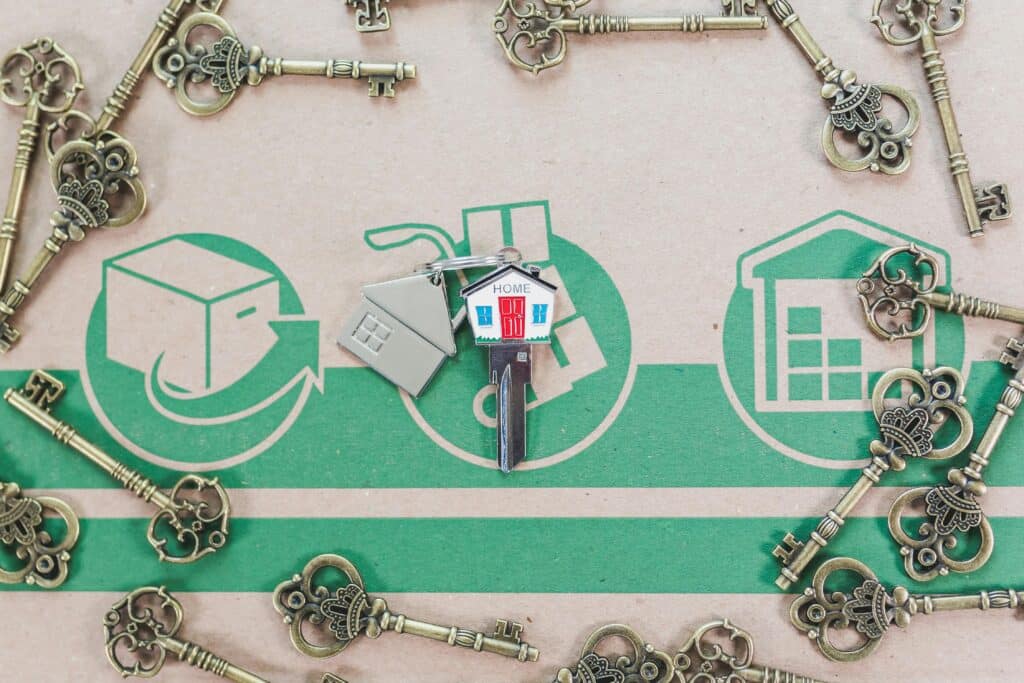
In today’s ultra-competitive real estate market, marketing isn’t just an optional extra—it’s the backbone of a successful business. Realtors must juggle branding, lead generation, digital advertising, SEO, social media, and community relationships, all while managing listings and clients. But amid this whirlwind of tasks and tools, one thing stands out as absolutely foundational: a professional-looking website.
Your website isn’t just a digital calling card—it’s your 24/7 sales representative, your personal brand hub, and your most scalable marketing channel. Whether you’re an independent agent or part of a larger brokerage, investing in a sleek, optimized, and functional website is no longer a luxury. It’s a necessity.
Let’s dive into the modern real estate marketing landscape and break down why your website is at the heart of it all.
I. The Evolving Real Estate Marketing Landscape
Real estate marketing has undergone a seismic shift over the past decade. Gone are the days when printed flyers, yard signs, and Sunday open houses could carry a realtor’s business. While traditional methods still have their place, the bulk of buyer and seller activity starts online.
According to the National Association of Realtors (NAR), 97% of homebuyers use the internet in their home search, and 51% find the home they ultimately purchase online. That statistic alone should reshape how realtors think about their marketing priorities.
Digital channels—ranging from SEO and PPC to email marketing and Instagram reels—offer more reach and better targeting than anything offline ever could. But none of these tactics can reach their full potential without a centralized, effective website.
II. Why Your Website Is the Cornerstone of Your Marketing Strategy
Here’s the truth: your real estate website is your most powerful marketing asset.
It’s where your brand lives. It’s where leads are captured. It’s where trust is built. And if it’s done right, it becomes a conversion machine that fuels every other aspect of your marketing.
Let’s break down the core reasons a professional-looking website matters so much:
1. First Impressions Matter
The average user forms an opinion about your website in just 0.05 seconds. That’s all the time you get to communicate professionalism, credibility, and trustworthiness.
If your site looks outdated, cluttered, slow, or amateurish, visitors will bounce—and they won’t come back.
By contrast, a polished, visually appealing website helps position you as a top-tier agent. Think clean lines, modern fonts, mobile responsiveness, and professional imagery. This isn’t just about “looking nice.” It’s about signaling to prospects that you’re successful, detail-oriented, and trustworthy.
2. Lead Generation Starts Here
An effective website doesn’t just look good—it works hard to generate leads. From calls-to-action (CTAs) and contact forms to chatbots and lead magnets (like a downloadable “First-Time Buyer’s Guide”), your site should be engineered for conversions.
Want to capture seller leads? Offer a free home valuation tool. Want to attract buyers? Provide detailed listing pages with neighborhood guides and saved search features.
Without a professional site that funnels visitors toward clear actions, you’re leaving money on the table.
3. SEO Begins with Your Website
Search Engine Optimization (SEO) is one of the most cost-effective ways to drive long-term traffic and visibility. But SEO isn’t magic—it starts with a well-built website that search engines can index and rank.
From site speed and mobile-friendliness to keyword-rich content and proper metadata, a strong website forms the backbone of a winning SEO strategy.
Want to rank for “best realtor in [your city]”? You won’t get there with a poorly built site, no matter how great your blog content or backlinks are.
4. Branding and Authority
Your website is the one place online where you control the narrative. Unlike your Zillow profile or social media pages, your site lets you tell your unique story—your expertise, your philosophy, your client success stories.
A great website builds your personal brand and reinforces your authority in your market. It helps you stand out from competitors who are still relying on cookie-cutter sites or generic brokerage pages.
5. Integration with Your Other Marketing Channels
Every other marketing tactic you use—Google Ads, Facebook campaigns, email marketing, postcards—needs a place to send people. That place should be your website.
A well-designed website integrates seamlessly with your CRM, IDX feed, ad pixels, analytics, and more. It becomes the nucleus of all your campaigns and data.
III. Key Features Every Realtor Website Should Have
If you’re convinced a professional site is crucial, you might be wondering: “What exactly should my website include?”
Here’s a checklist of must-have features for a modern, conversion-focused real estate website:
1. Mobile Optimization
Over 60% of home searches happen on mobile. If your site isn’t responsive and easy to use on a phone, you’re losing prospects every day.
2. IDX Integration
Your listings should automatically pull from the MLS via an IDX (Internet Data Exchange) feed. This ensures your site stays current without manual updates.
3. Clear Navigation and CTAs
Your menu should be intuitive. Your homepage should feature prominent CTAs like:
- “Search Homes”
- “Schedule a Consultation”
- “Get a Free Home Valuation”
4. About Page with a Personal Touch
People want to work with someone they like and trust. Use your About page to share your story, experience, values, and a professional photo.
5. Neighborhood and Community Guides
These pages help you rank for long-tail keywords like “homes for sale in [neighborhood]” and provide huge value to buyers.
6. Client Testimonials and Case Studies
Social proof builds trust fast. Include written testimonials, video reviews, and even full case studies of successful transactions.
7. Lead Capture Tools
Popups, banners, downloadable guides, home valuation tools, email newsletter signups—all of these should be part of your strategy.
8. Fast Load Time
Your site should load in under 3 seconds. Anything slower kills your SEO and frustrates visitors.
IV. Common Website Mistakes Realtors Make
Even if you have a website, it might be working against you instead of for you if it falls into one of these traps:
- ❌ Generic templates: If your site looks like 1,000 others, there’s no way to stand out.
- ❌ No clear brand message: Visitors should immediately understand who you help and how.
- ❌ Poor photos and visuals: Grainy headshots and outdated listing photos are a big turnoff.
- ❌ Lack of trust signals: Where are your testimonials, certifications, or “as seen on” logos?
- ❌ No lead capture: If someone wants to work with you but can’t find a form or number, they’ll leave.
Investing in a custom website or working with a niche agency that understands real estate marketing can eliminate these pitfalls and boost your ROI.
V. Amplifying Your Website with Digital Marketing
Once your site is dialed in, you can amplify its impact with other marketing strategies that drive traffic back to your site:
1. SEO Blogging
Regular, keyword-optimized blog posts can help you rank for questions like:
- “Is it a good time to buy a home in [your city]?”
- “How much is my home worth?”
- “Top neighborhoods for families in [your market]”
2. Pay-Per-Click (PPC)
Google Ads targeting keywords like “homes for sale in [city]” or “sell my house fast [city]” can deliver high-intent leads—if they land on a conversion-friendly page.
3. Social Media Ads
Platforms like Facebook and Instagram allow for ultra-precise targeting. Promote listings, guides, or home valuation tools with ad campaigns that send users directly to your site.
4. Email Marketing
A simple monthly newsletter with listings, tips, and market insights helps nurture your database—and every email should link back to your site.
5. Video Marketing
Embedding video walkthroughs, client interviews, and neighborhood spotlights on your site boosts engagement and time-on-page (both good for SEO).
VI. Case Study: From Stale to Stellar
Consider “John,” a mid-level agent in Austin. For years, John relied on his brokerage’s templated page and focused on referrals and word-of-mouth.
After investing in a professional website with a local agency, his business changed dramatically:
- Leads from organic search increased by 70% in 6 months.
- Bounce rate dropped by 40%, indicating better engagement.
- He added a seller lead magnet (“Get Your Home’s Value Instantly”) and saw a 300% increase in valuation requests.
- PPC ad performance improved thanks to better landing pages, reducing his cost-per-lead by 45%.
John didn’t change his services—he simply upgraded the digital storefront he used to represent them.
VII. Final Thoughts: Invest in Your Digital Foundation
Real estate will always be about relationships. But the way those relationships start—and how you nurture them—has evolved. In most cases, your first impression happens online, not in person.
If your website isn’t pulling its weight, you’re not just missing opportunities—you’re actively pushing them away.
A professional real estate website isn’t just a box to check. It’s the foundation on which you build your brand, generate leads, and grow your business.
So whether you’re just starting out or looking to scale, ask yourself: Is my website helping me grow, or holding me back? If it’s the latter, there’s no better time than now to level up.





